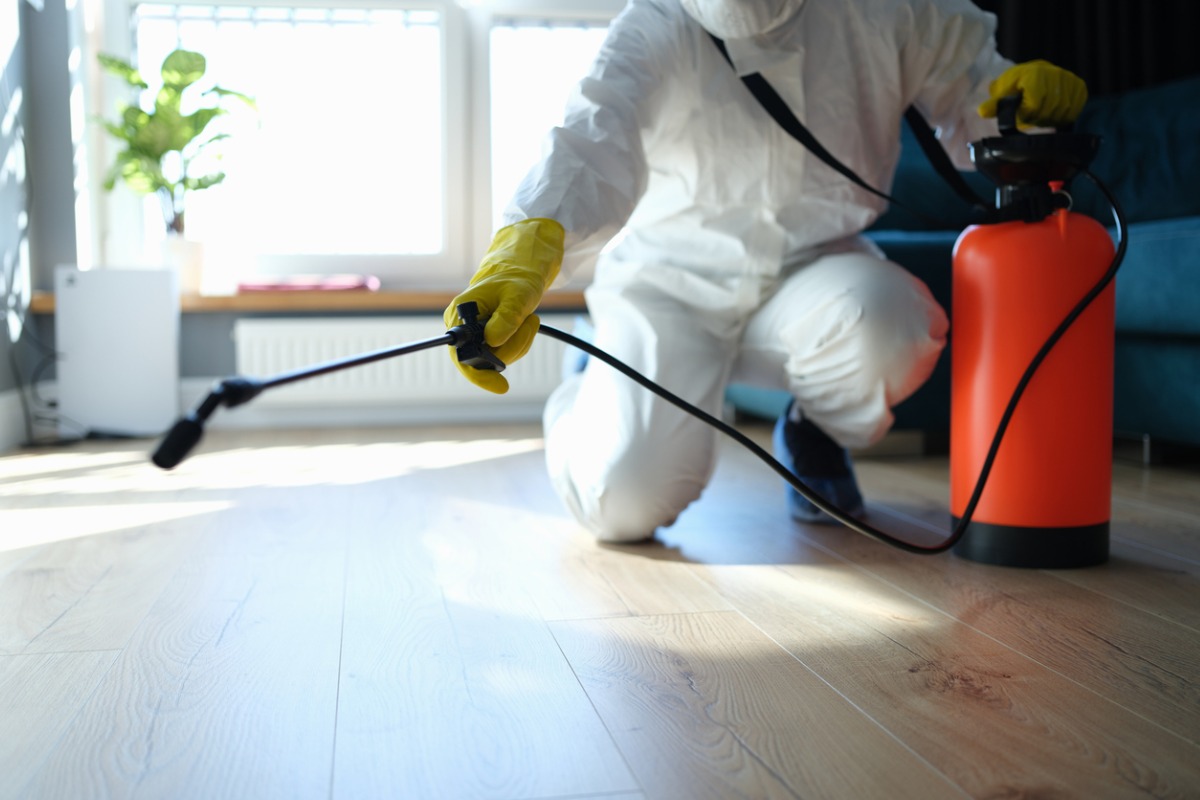Guaranteed Pest Control for a healthier living space.
Guaranteed Pest Control for a healthier living space.
Blog Article
Eco-Friendly Parasite Control Approaches for Handling Wildlife in Urban Locations
Urban locations frequently locate themselves at the crossway of human task and wildlife, leading to one-of-a-kind challenges in bug monitoring. These approaches not only shield the environment but likewise improve neighborhood engagement in wild animals administration. As city populations proceed to expand, understanding the dynamics of wildlife communications ends up being increasingly vital.
Comprehending Urban Wildlife Characteristics
Recognizing Urban Wild animals Dynamics is vital for establishing reliable and eco-friendly insect control strategies. Urban locations are significantly becoming habitats for various wild animals types, driven by variables such as environment fragmentation, food schedule, and human infringement. Identifying these dynamics permits for a nuanced strategy to pest management that lines up with environmental concepts.
Urban wild animals usually consists of types such as raccoons, squirrels, and birds, which adjust to city settings, discovering specific niches in environment-friendly areas, parks, and even property locations. Their existence can lead to conflicts with people, especially when they manipulate personnels for food and sanctuary. Comprehending the habits and ecological duties of these types notifies methods that reduce adverse communications while promoting biodiversity.
Moreover, recognizing the interdependencies within city environments aids in identifying crucial areas for environment conservation and restoration. This expertise adds to the development of integrated parasite management (IPM) techniques that think about the environmental equilibrium, thereby minimizing reliance on hazardous chemicals. By promoting conjunction in between humans and urban wildlife, cities can create much healthier atmospheres that profit both citizens and local ecological communities, leading the way for sustainable urban living.
All-natural Repellents and Deterrents
Natural repellents and deterrents provide a lasting option to traditional insect control approaches by using the power of nature to maintain unwanted varieties at bay. These green services normally use plant-based active ingredients, necessary oils, and various other normally happening materials that hinder pests without hurting the atmosphere.
One reliable all-natural repellent is peppermint oil, which is recognized to push back rats and bugs. Its strong aroma is undesirable to lots of insects, making it a popular choice for metropolitan setups. Vinegar and citrus peels can serve as deterrents, as their solid odors are generally unappealing to various wild animals.
Furthermore, diatomaceous earth is a natural powder that can be spread in areas susceptible to pest activity, successfully drying out and discouraging insects without posturing threats to non-target types. Garlic sprays and neem oil are acknowledged for their capacity to ward off a wide variety of pests, consisting of both insects and bigger wild animals.
Carrying out these natural repellents not just minimizes dependence on chemical pesticides but also promotes a healthier urban ecosystem, cultivating an extra well balanced conjunction in between people and wildlife. By utilizing these approaches, metropolitan locations can properly take care of insect populations while reducing ecological influence.
Habitat Adjustment Techniques
Efficient habitat adjustment methods play a vital role in sustainable parasite management by altering the setting to make it less for pest invasions. By recognizing the eco-friendly characteristics of city areas, homeowner can execute strategic modifications that prevent bugs while advertising biodiversity.
(Termite treatment Port Charlotte)One key technique entails maintaining proper cleanliness. This consists of regular waste removal, protecting trash can, and removing standing water to decrease reproducing sites for bugs and rats. Furthermore, landscaping techniques such as picking native plants can improve eco-friendly balance, giving environments for useful organisms while lessening resources for insects.
One more crucial strategy is to seal entry factors in structures. Inspecting and repairing fractures in structures, wall surfaces, and windows can substantially lower pest gain access to. Additionally, creating physical obstacles, such as fencings or plant barriers, can prevent wildlife activity into human-inhabited locations.
Integrated Parasite Management Practices
Building upon habitat alteration strategies, incorporated parasite monitoring (IPM) techniques supply an all natural strategy to regulating parasite populaces while decreasing ecological influence. IPM combines different approaches, consisting of organic, cultural, mechanical, and chemical controls, to accomplish effective parasite administration.
Organic control involves the introduction of natural predators or parasites to minimize insect populations. Cultural practices, such as plant rotation and hygiene, interfere with pest life cycles and diminish their environments - Pest control service. Mechanical controls, like traps and barriers, provide prompt remedy for bug pressures without chemical intervention
Chemical controls are made use of as a last option, concentrating on targeted applications that limit damage to non-target varieties and the atmosphere. The choice of eco-friendly pesticides, when needed, is important to the IPM structure. Additionally, checking bug populaces and evaluating possible damage aids notify decision-making, making certain that interventions are prompt and reliable.
Area Participation and Education

(Commercial pest control Port Charlotte)Workshops and educational sessions can equip residents with expertise about native varieties, environment preservation, and efficient non-toxic pest monitoring techniques. Collaboration with institutions, regional companies, and government companies additionally enhances instructional outreach, ensuring that crucial info gets to diverse audiences.
Moreover, community-led efforts, such as community clean-up days and environment reconstruction projects, not only promote biodiversity yet likewise strengthen area ties. Pest control service. By encouraging residents to share their experiences and observations, communities can establish targeted methods that resolve specific local parasite problems
Integrating feedback from locals into bug monitoring plans enables a more responsive and adaptive method to wild animals obstacles. Eventually, educated and involved areas are vital to accomplishing lasting success in environmentally friendly parasite control, bring about healthier city environments that respect both human and eco-friendly needs.

Final Thought
Finally, green bug control approaches deal sustainable options for managing city wildlife. By focusing on habitat adjustment, utilizing all-natural repellents, and executing incorporated insect monitoring practices, areas can Check This Out foster an unified conjunction with local animals. Additionally, involving locals via education enhances understanding and encourages liable wildlife communications. Eventually, these methods not only protect biodiversity yet likewise advertise ecological wellness, making sure metropolitan locations continue to be lively environments where people and wildlife flourish with each other.
Report this page